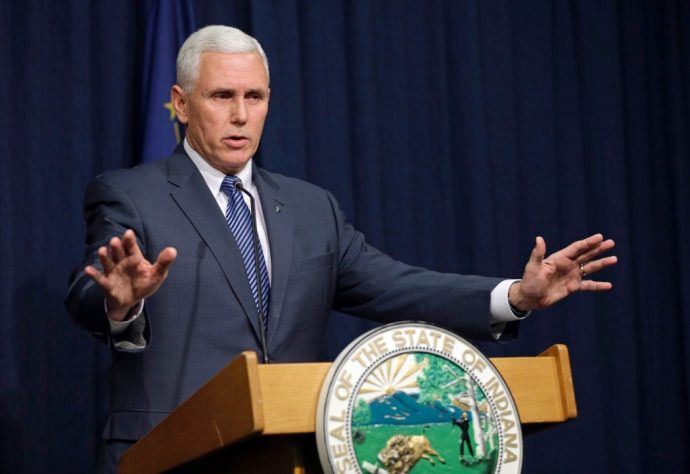I have my disagreements with Alan Keyes, and have written about at least one of them on these pages. But here is where reading his articles can be fun. As opposed to poor Andrew Napolitano, who has been shaped by his culture and confused by his law school education, Alan Keyes outlines the heart of the matter in this Indiana case.
It is not a complicated issue despite what Napolitano thinks. While it takes a little thought based on correct history, it can be understood by anyone. Here’s Keyes (I would also recommend reading his part two linked at the end of his article):
These days it is almost impossible to take anything that happens in our politics (i.e., the sphere of life in which we are supposed to think and act as members of the sovereign body of the people) at face value.
Gov. Mike Pence is being lionized by some for doing what the U.S. Constitution required him to do: sign into law the Religious Freedom Restoration Act, passed by the Indiana legislature, and intended to reinforce the free exercise of religion in Indiana. I say that the U.S. Constitution requires him to do so because the 14th Amendment clearly says that “No state shall make or enforce any law which shall abridge the privileges or immunities of citizens of the United States.” The Ninth Amendment further states that “The enumeration in the Constitution, of certain rights, shall not be construed to deny or disparage others retained by the people.”
By using the word “retained” the Ninth Amendment makes it clear that the rights referred to are antecedent rights, possessed by the people before, by their collective will, they ordain and establish the Constitution. Now, the organic law of the United States includes both the U.S. Constitution and the Declaration of Independence. In words well known that resound throughout the history of the United States, the Declaration articulates the understanding of rights that informs the Constitution’s use of the word when it observes “that all men are created equal and endowed by their Creator with certain unalienable rights.”
The Declaration makes it clear that those unalienable rights include but are not limited to “life, liberty and the pursuit of happiness.” The word “unalienable” makes it clear that they are such as to be inseparable from the very nature of humanity, and so cannot be given or taken away without degrading it. So when we “deny or disparage” (belittle, denigrate, lower in rank or reputation) the exercise of such rights, we impair humanity itself.
Read more: BarbWire.com
Image credit:abcnews.go.com.

